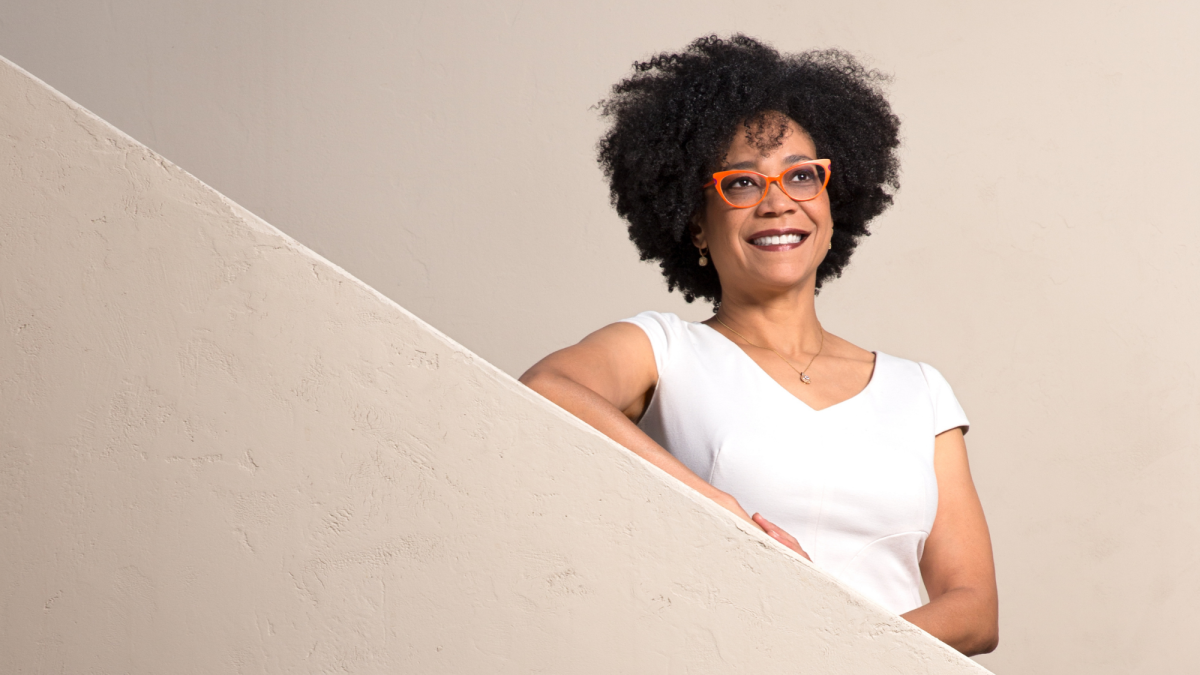Beyond Black History Month

Kenja Hassan, a senior fellow of the ASU Foundation and assistant vice president of cultural relations in the Office of Government and Community Engagement, says 2024 offers opportunities to learn about pivotal times in Black history. Courtesy photo
Black History Month this February is the beginning of what Kenja Hassan calls “a beautiful year to think about Black history in the United States.”
Hassan, who serves as a senior fellow of the ASU Foundation, said 2024 offers unique opportunities to think more deeply about inclusivity and equality in our public life through two upcoming milestones.
Arizona State University will celebrate the 60th anniversary of the Rev. Martin Luther King Jr.'s speech at ASU this June.
Then, on July 2, the U.S. will mark 60 years since President Lyndon Johnson signed the Civil Rights Act, prohibiting discrimination in public places, integrating schools and other public facilities, and making employment discrimination illegal.
That legislation was a manifestation of the legal protections King and thousands of civil rights activists had been working toward in the decades prior, Hassan said.
Each of these events offers a chance to learn about pivotal times in our shared history, she said, and “to step into someone else’s viewpoint.”
MLK's speech at ASU
“For us at ASU, we have this wonderful speech to look back on,” Hassan said.
Lost to history for 50 years, the speech was discovered when a shopper found a box of 35 dirty and aging reel-to-reel tapes in a Goodwill store in Phoenix.
“I don’t even know how she managed to listen to them. I mean, who had a reel-to-reel in 2014?” Hassan said.
Today, community members can access audio and written forms of the speech “Religious Witness for Human Dignity” at the ASU Library Repository.
Standing before 8,000 people in ASU’s Goodwin Stadium, King spoke about issues that still concern us today, Hassan said — the need to end racism and racial discrimination, address global hunger and poverty, and end housing discrimination based on race and ethnicity. King also spoke about factors that contribute to crime and what happens when people are stuck in economically challenged areas.
“He called for human love across racial divisions, across religious divisions and across political divisions,” she said.
For those who are interested in examining these issues, Hassan says there are “superb organizations inside the university” that can guide their journey: The Center for the Study of Race and Democracy creates dialogue on race and democracy; the Center for the Study of Religion and Conflict helps people think about how we develop discriminatory tendencies based on religion; and ASU’s Project Humanities works to address issues of poverty in our community.
She also recommends engaging with the Arizona PBS site on Black History Month, where viewers can take a deep dive into programming created by documentarians like Ken Burns and Henry Louis Gates Jr. or learn about their neighbors through the series "Black in Arizona."
Helpful links
• "Religious Witness for Human Dignity."
• Center for the Study of Race and Democracy.
• Center for the Study of Religion and Conflict.
• Arizona PBS, Black History Month.
The Civil Rights Act
The anniversary of the Civil Rights Act is a good time to understand how the U.S. has become a more inclusive society, Hassan said.
“The Civil Rights Act banned discrimination based on gender, sex, color, national origin and race, which really changed the way people in the United States could behave in public — meaning that people who were, in the past, separated from one another were now in spaces to interact and interface with each other.
"That led to a whole suite of other legislation that was really important to creating the inclusive society we have today,” she said.
For example, the 1965 Voting Rights Act addressed discrimination in voting, and the 1965 Immigration Act changed the way immigrants come to the U.S.
In 1968, the Housing and Urban Development Act ended racial covenants, “so people who were redlined into certain neighborhoods … were no longer barred by racial covenants from buying homes in other neighborhoods,” Hassan said.
“That allowed lots of people to begin to take part in that aspect of the American dream of home ownership.”
Next came a suite of laws that added more guarantees for Native Americans: “In the late '70s, following the Civil Rights Movement, the American Indian Movement began, and people were able to advocate for new laws that they had never had before. And I feel like this sort of momentum culminated with the 1990 Americans with Disabilities Act,” Hassan said.
“Part of understanding Black history is understanding the American and human momentum towards being valued and having equal opportunity towards a good and peaceful life,” Hassan said.
"How do we create and build a society where more people can have access to things that are good and that bring health and peace to their own lives?”
Philanthropic opportunities
In honor of ASU’s Black students, faculty and staff who have used higher education to break down barriers to social progress, improve their communities and pave the way for the next generation, the ASU Foundation is highlighting philanthropic opportunities that support Black student and faculty success.
More Arts, humanities and education

School of Social Transformation faculty member assumes new title with NSF
School of Social Transformation faculty member and Founding Executive Director of the Center for Gender Equity in Science and Technology (CGEST) Kimberly Scott is accepting a new position…

ASU's Neal Lester reflects on life, death of poet Nikki Giovanni
When Neal Lester heard on Monday that poet and activist Nikki Giovanni had died, the news hit hard.Lester, the founding director of Arizona State University’s Project Humanities and a Foundation…

Learning by stepping outside
By Adriana MaestasAmid a world increasingly captivated by all things digital, more than 200 Arizona teachers have crafted immersive educational experiences that nudge students to step away from their…